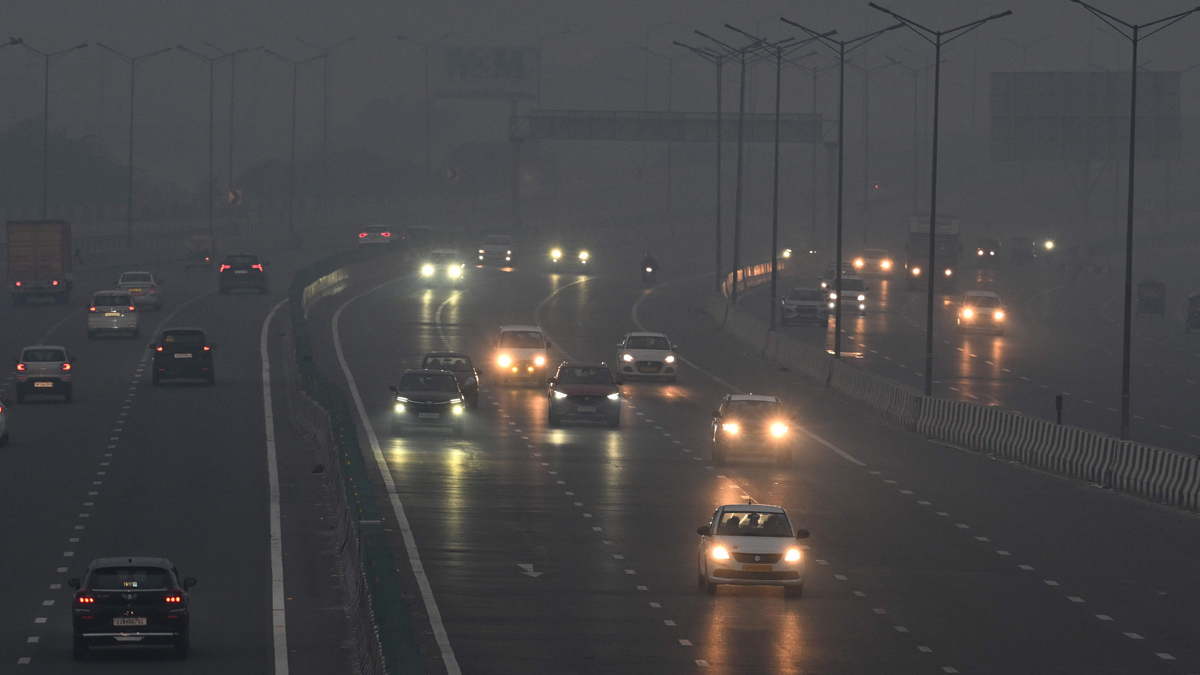Green crackers fail as AQI plummets to 4-year worst post-Diwali in Delhi, ignites BJP-AAP blame game
 Commuters drive amid heavy smog in New Delhi on October 21, 2025, as haze engulfed the city skyline a day after Diwali celebrations, the Hindu festival of lights. Toxic air in India's capital spiralled to more than 23 times UN daily health limits on October 21, as the annual winter pollution blanketed the sprawling urban area of 30 million people. (Photo by Arun SANKAR / AFP)
Commuters drive amid heavy smog in New Delhi on October 21, 2025, as haze engulfed the city skyline a day after Diwali celebrations, the Hindu festival of lights. Toxic air in India's capital spiralled to more than 23 times UN daily health limits on October 21, as the annual winter pollution blanketed the sprawling urban area of 30 million people. (Photo by Arun SANKAR / AFP)
The green crackers have failed to do their magic as toxic haze blanketed Delhi a day after Diwali celebrations. The national capital recorded its worst air quality since 2021 on Tuesday, with most of the monitoring stations recording AQI falling in 'very poor' or 'severe' category.
While the Bharatiya Janata Party (BJP) government in Delhi blamed the previous Arvind Kejriwal regime and Punjab's Aam Aadmi Party (AAP) regime for Delhi's misfortune, the Opposition accused the government of failing to protect the people. Both the BJP and AAP traded barbs against each other on Tuesday, with the Delhi government claiming the spike in pollution levels on the day after Diwali was marginal compared to previous years.
Addressing a press conference earlier today, Delhi Environment Minister Manjinder Singh Sirsa said the spike in pollution levels was marginal and accused the Punjab AAP government of large-scale stubble burning in the neighbouring state. Sirsa charged Punjab of forcing farmers to burn crop residue to send pollution levels up in the national capital.
Alleging the AAP is 'playing religious politics', Sirsa accused the Opposition party of targeting followers of Sanatan Dharma to appease a section of its voters. Claiming the increase in pollution levels was only marginal compared to previous years, Sirsa said, "We admit with pride that our government has given people a chance to celebrate Diwali in our traditional way."
Delhi AAP president Saurabh Bharadwaj accused the BJP government of playing with the lives of children and women in the national capital. He alleged the Delhi AQI spiked to 1079 on Diwali night, however, the data became inaccessible later.
The PM2.5 levels spiked to 675 on Diwali night, a multi-fold increase in the pre-festival level of 156.6 micrograms per cubic metre. According to an analysis of Central Pollution Control Board (CPCB) data covering the period from 2021 to 2025, PM2.5 values in Delhi consistently spiked during Diwali night and early the next morning, with the 2025 post-Diwali reading of 488 micrograms per cubic metre being the most polluted period since 2021.
India